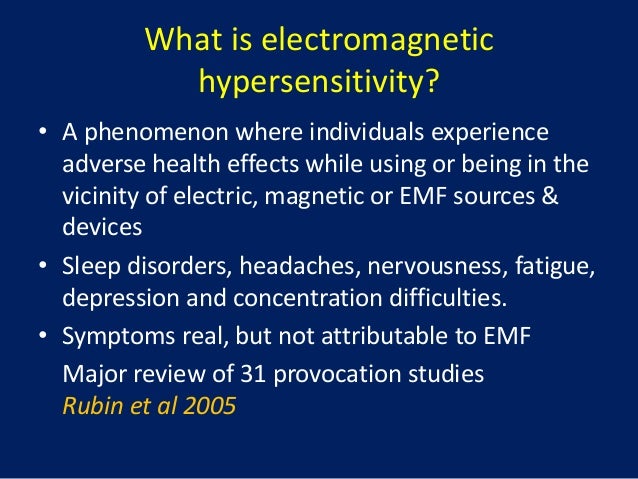EMF sensitivity (EMF sensitivity) is a condition where an individual has a high sensitive to electromagnetic fields around him. This condition is not limited to situations where there is no electric current, but may be a problem for people with an open circuit, or are exposed to electromagnetic fields for long durations of time. emf sensitivity symptoms is well-versed in the causes of EMF sensitivities, and can help patients treat the symptoms. The center has the ability to perform tests to determine whether someone is vulnerable to EMF exposure. This is possible using new technology that can measure heart rate variation.
I.E.-EMF sensitivity is a sign of emf exposure
Electromagnetic contamination and the resulting electromagnetic fields are a factor in the onset of many of ailments. emf sensitivity are often difficult to identify, and some people have reported a range of symptoms. It could be because of a pre-existing condition or as a reaction to stress due to the possibility of exposure to high levels in electromagnetic field. electromagnetic hypersensitivity syndrome , the symptoms can be very debilitating to individuals who experience them. However the fact that scientists are still not sure how common the IEI-EMF sensitivity syndrome is and the extent to which it is widespread.
It is not a symptom of electrohypersensitivity
While the symptoms of electrohypersensitivity and EMF sensitivity are similar, there are some key differences. Electromagnetic hypersensitivity can be misunderstood and symptoms can differ widely. It is crucial to receive a proper diagnosis to understand the causes behind the condition and the possibilities for treatment.
It is not a sign of EHS
Although EMF sensitivities are not an underlying sign of EHS, it is often associated with the disorder. Some studies have suggested that the condition may be related to genetics and environmental factors rather than any specific physical condition. However, more research is needed to come to a definitive conclusion.
It can be confusing
The signs of EMF sensitivity can be perplexing. Most EHS sufferers do not believe that their symptoms are due to any specific cause. They seek medical help however are unable to identify a cause for their condition. This raises suspicions that they may have any mental disorder of some kind which can cause an increased feeling of anxiety and helplessness.
It can be terrifying

The effects of electromagnetic fields, also known as EMFs are often frightening. Some people report experiencing unpleasant symptoms after exposure to these electromagnetic fields, which are generated by devices such as Wi-Fi routers as well as mobile phones. The symptoms may vary in severity, however in extreme cases, individuals are forced to stay away from fluorescent lights and electronic devices. In extreme cases, sufferers might be forced to withdraw from the modern world and live in isolated communities that are known in the industry as "EMF-free zone".
It can help with melatonin production
One of the most significant hormones that the body produces Melatonin, one of the most important hormones in the body, is synthe by the pineal gland. It plays a role in a variety of physiological functions, including the regulation of circadian rhythm. But its function as a factor of protection in the face of nonionizing electromagnetic field has been questioned, largely due to inconsistency in results from different studies. The current knowledge of the hormone's protective mechanisms is largely based upon our understanding of the mechanism that it protects your body from the oxidative stress produced by RF/ELF exposure.
It can aid with autonomic nervous system changes
A number of studies demonstrate that EMF sensitivity can affect the nervous system of autonomic control. Patients with the condition can experience altered autonomic responses and may experience digestive issues. Some patients have problems digesting food correctly or be ill when they eat a smaller amount. Others may experience changes in body temperature or have heat intolerance. These issues are typically due to other health issues, such as diabetes.
